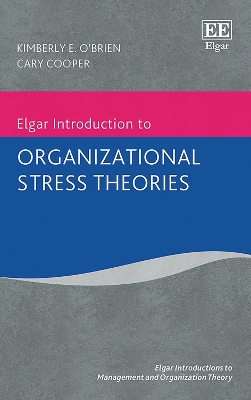Elgar Introductions to Management and Organization Theory
1 total work
Elgar Introduction to Organizational Stress Theories
by Kimberley E. O'Brien and Cary Cooper
In addition to providing an overview of the theories, models, and hypotheses related to job stress, the authors present organizational and individual implications for both management and personal improvement. For scholars, gaps in the literature are identified to facilitate future research. Instructors and students will find this knowledge valuable for organizational psychology/behavior, occupational health psychology, or job stress classes, among others.
Altogether, students, researchers, and practitioners will find this Introduction integral to their learning, and benefit from the actionable research ideas and suggestions for stress reduction.
